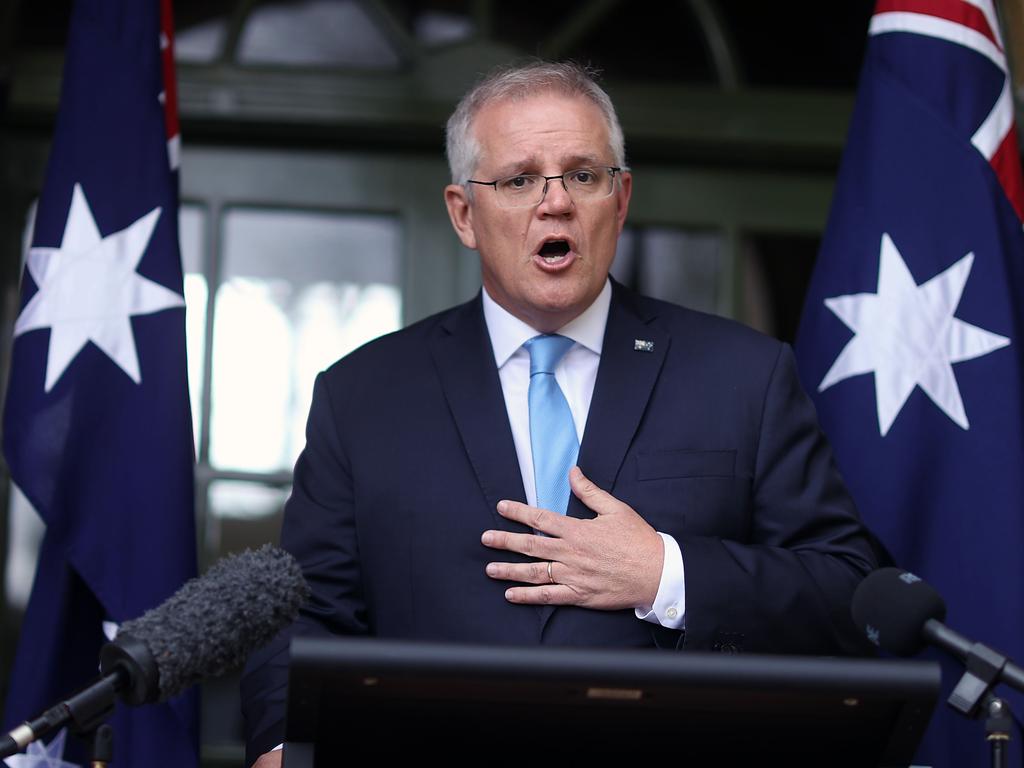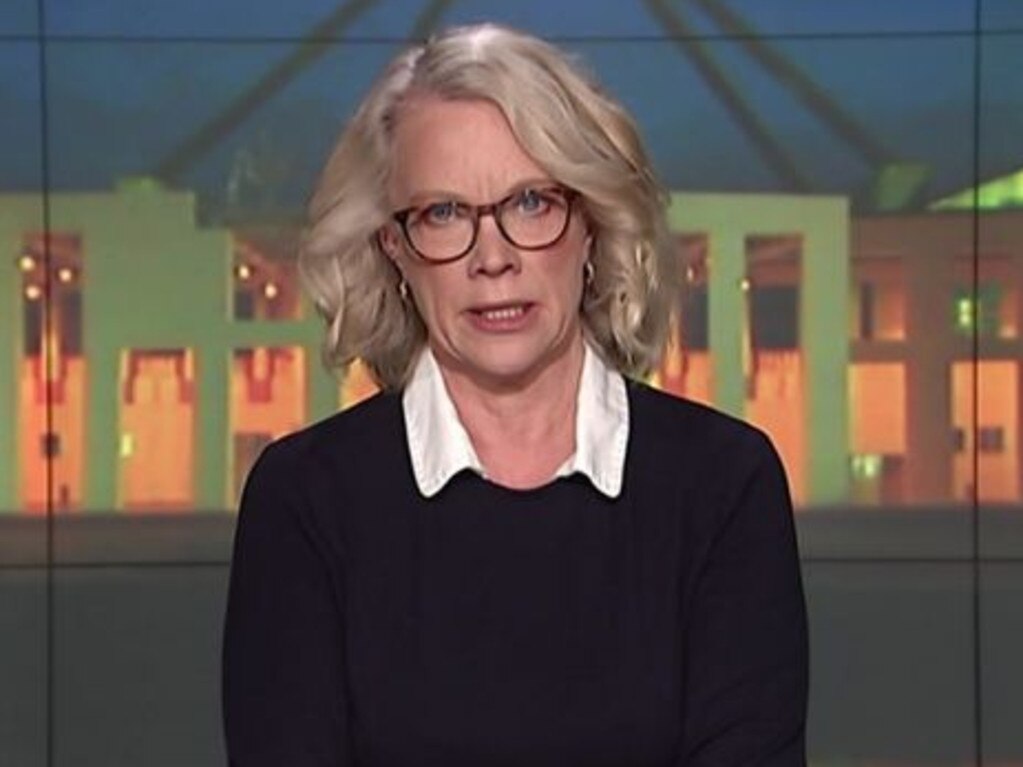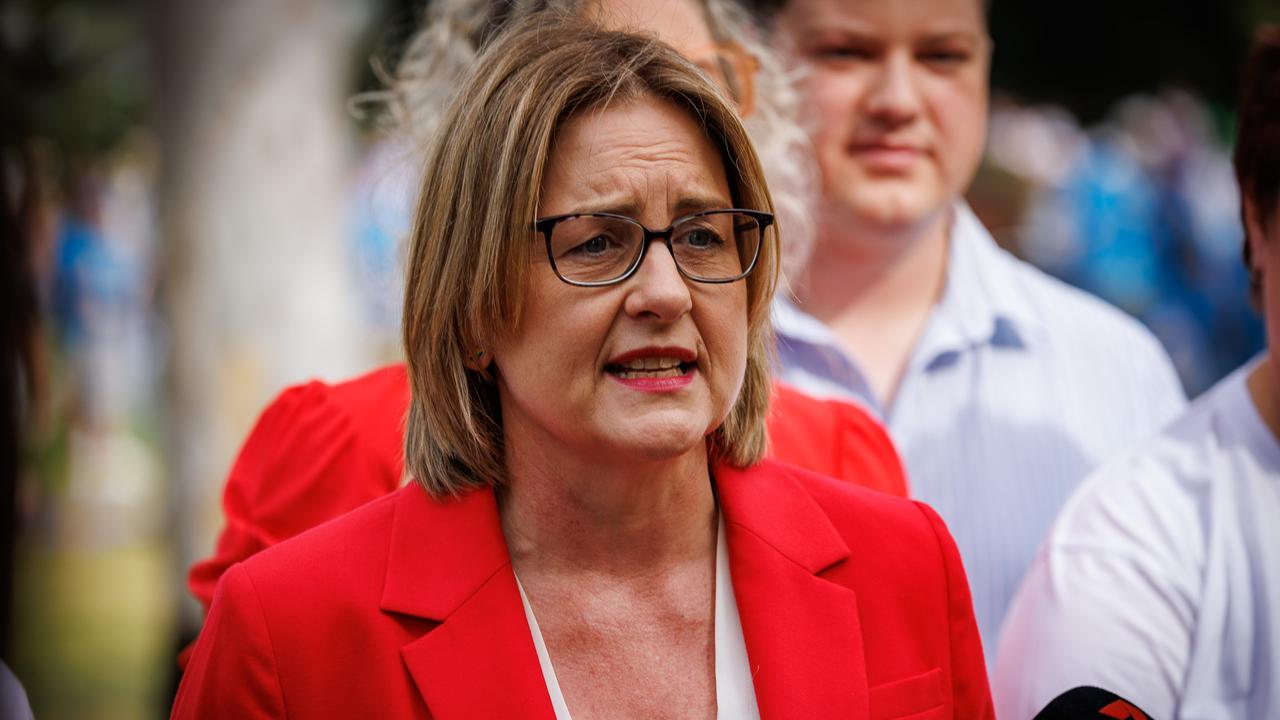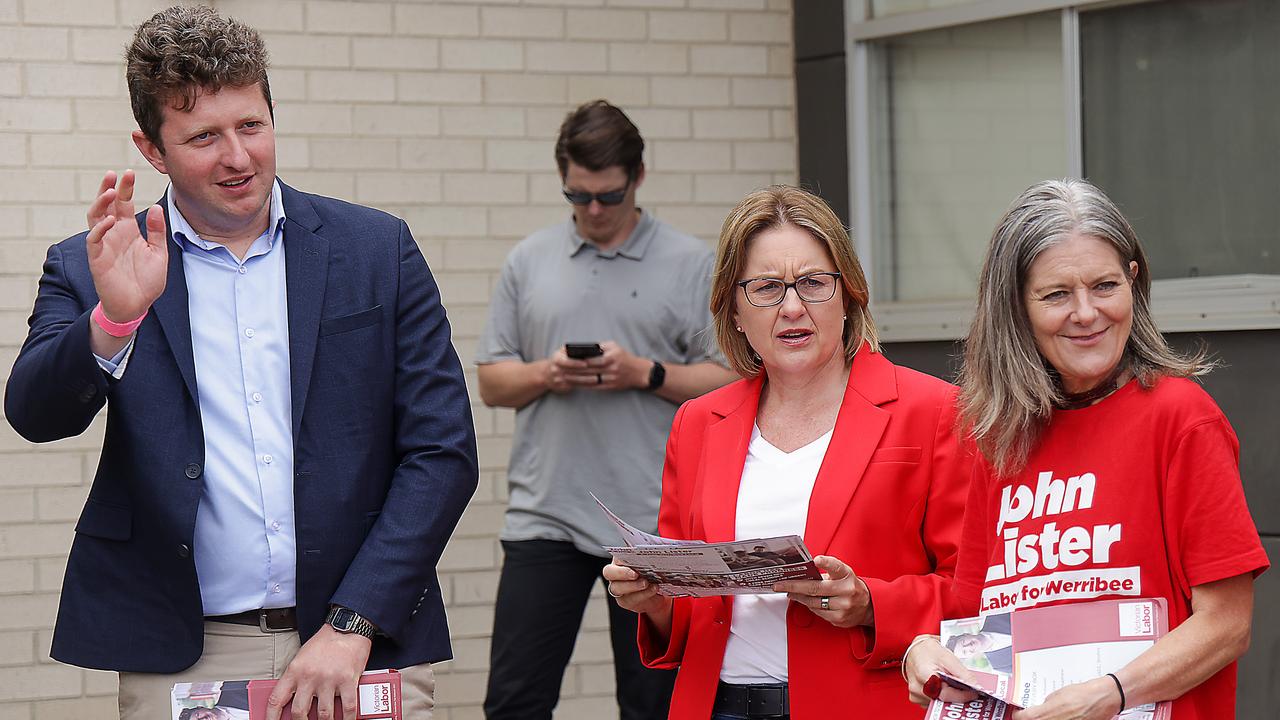Newspoll: Subs deal wins backing amid fears over China
A significant majority of voters back a nuclear-powered submarine fleet amid anxiety over China, a Newspoll finds.
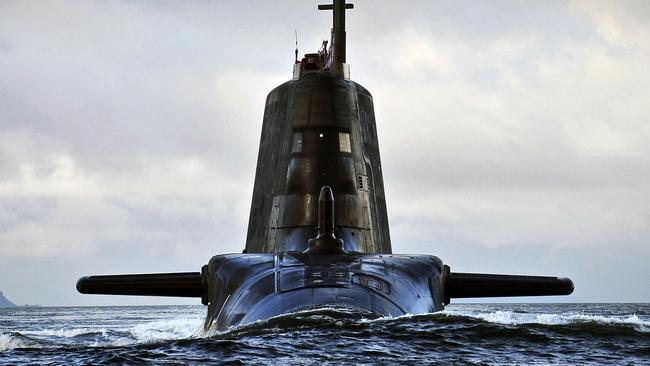
A significant majority of voters back the construction of a nuclear-powered submarine fleet for the Australian navy amid community anxiety over the perceived national security threat posed by China.
Most also believed that the trilateral strategic defence pact with the US and UK announced two weeks ago by Scott Morrison would make Australia safer in the midst of increasing strategic tensions in the region.
An exclusive Newspoll conducted for The Australian to test the national response to the historic agreement shows 59 per cent of voters support the nuclear submarine project.
Of those polled, 75 per cent also believe China posed a significant threat to Australia’s national security while 46 per cent believe the AUKUS pact will make Australia safer and 29 per cent believe it will make no difference.
In the deal signed a fortnight ago by the Prime Minister, US President Joe Biden and UK Prime Minister Boris Johnson, Australia will be granted access to highly guarded US or UK technology to build a sovereign fleet of eight nuclear-propelled submarines.
The AUKUS pact, which Mr Morrison said was necessary because of the deterioration of the strategic situation in the Indo-Pacific region, will also give Australia access to more immediate sophisticated defence technology, including long-range missile and cyber warfare capability, and undersea drone technologies.
The agreement, which received conditional bipartisan support from Labor, meant Australia would no longer proceed with the contract for the French-designed and conventionally powered boat, which had been signed under the Turnbull government in 2016.
This prompted an angry response from France and the recalling of its ambassadors from Canberra and Washington in protest. It also sparked criticism from two former prime ministers, with Paul Keating accusing the Morrison government of compromising the nation’s sovereignty and Malcolm Turnbull saying the withdrawal from the French contract had been handled poorly and had damaged Australia’s national security.
While support for the nuclear submarine deal was strongest among Coalition voters with 80 per cent claiming to approve of the project, Labor voters were also strongly supportive, with 51 per cent backing nuclear submarines compared with 38 per cent disapproving of the building and operation of a nuclear-powered fleet. Opposition was greatest among Greens voters, with 61 per cent opposed and 31 per cent in favour.
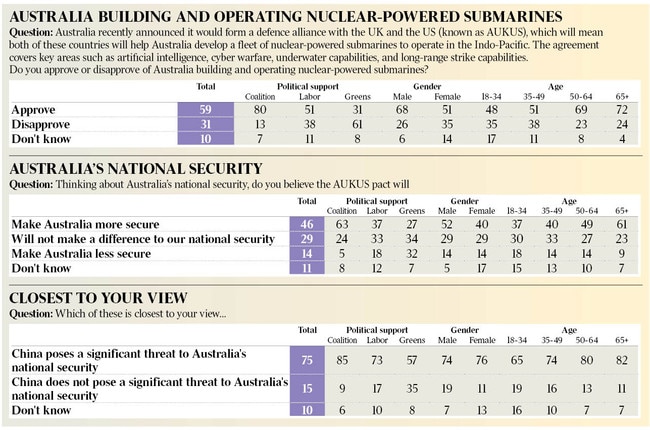
Men were significantly more in favour than women – 68 per cent compared with 51 per cent. While a majority of support was shared across all age groups, there was a generational split over the level of that support.
A total of 69 per cent of those aged between 50 and 64 and 72 per cent of those aged over 65 were in support. That tapered off among the younger generations, with 51 per cent support among 35-49 year olds, with 38 per cent not in favour, and 48 per cent of 18 to 34 year olds backing the plan compared with 38 per cent disapproving.
Mr Morrison has argued that a shift to a nuclear-powered fleet had been made possible with new technology that didn’t require the nuclear reactors to be serviced for the life of the submarine, negating the need for a domestic nuclear industry and a breaking of a long-held moratorium.
It had been made necessary, he said, because of the increasing threat posed by China in the region through its militarisation and the inadequacy of the French conventional proposal to meet Australia’s changed strategic requirements.
The sharing of nuclear submarine technology had been granted only once by the US when in 1958 it allowed access for the UK through a single agreement.
The belief that China posed a significant threat to Australia’s national security was shared universally across party lines, with 80 per cent of Coalition voters, 73 per cent of Labor voters and 57 per cent of Greens voters agreeing with the proposition.
Women were also more likely to agree, with 76 per cent compared with 74 per cent of men believing the threat was significant.
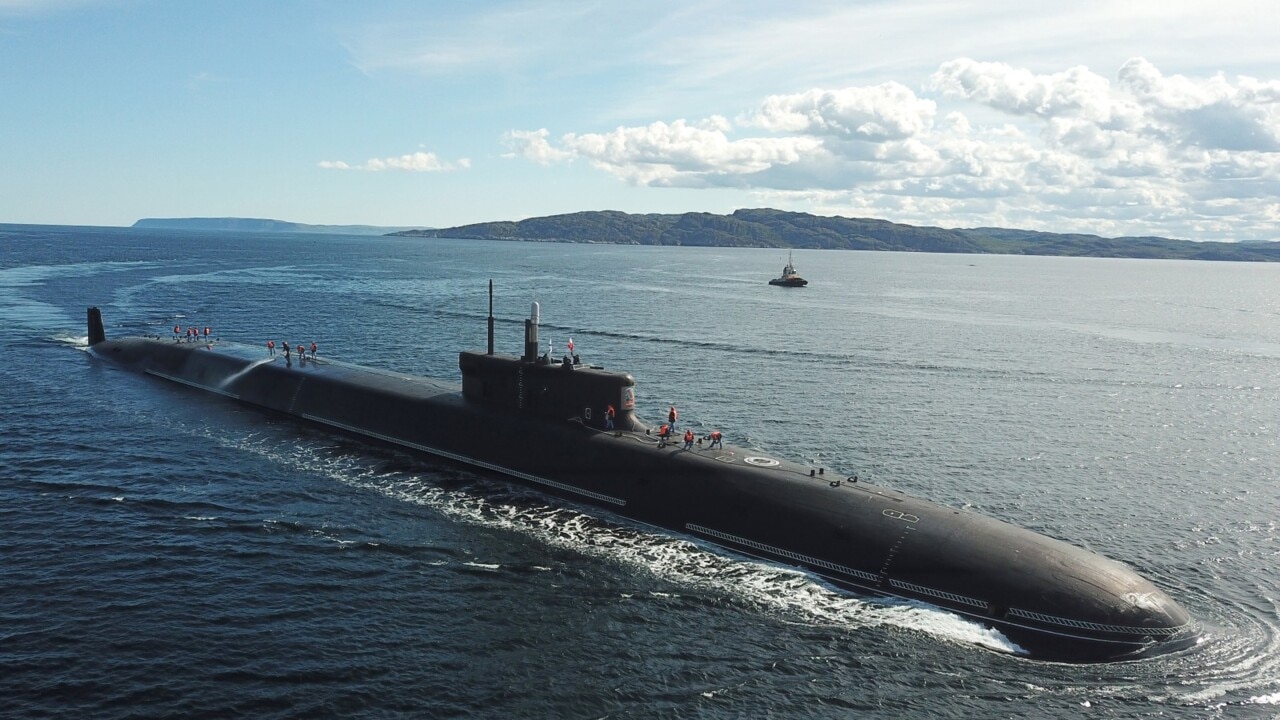
Voters were more divided over whether the AUKUS agreement would make Australia more or less safe.
While 46 per cent of voters believed it would enhance Australia’s security, 29 per cent didn’t believe it would make a difference. Only 14 per cent agreed it would make Australia less secure.
Again, support for this proposition was strongest among Coalition voters with 63 per cent claiming it would lead to a more secure nation compared with 37 per cent of Labor voters and 27 per cent of Greens voters.
Greens voters were the only group that believed the AUKUS arrangement would make Australia less secure.
Men more than women were more supportive, with 52 per cent claiming it would make Australia safer compared with 29 per cent saying it would make no difference and 40 per cent of women who believed it would, 29 per cent feeling that it wouldn’t and 17 per cent saying they didn’t know.
The exclusive poll surveyed 1545 voters between September 29 and October 2.


